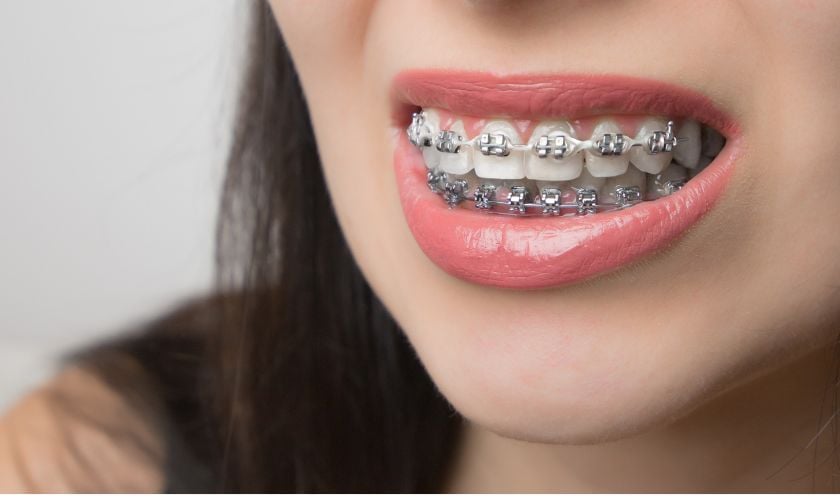Pregnancy is a special time filled with many considerations, especially when it comes to health and medical treatments. If you are considering orthodontic treatment, such as getting Dental Braces in Dubai, while pregnant, it’s essential to understand how pregnancy might affect your treatment and what precautions should be taken. Dental health during pregnancy is important, but so is the safety of both mother and baby. This article explores key factors and practical advice for managing braces during this unique period.
Is It Safe to Get Dental Braces While Pregnant?:
Orthodontic treatment itself is generally considered safe during pregnancy because it mainly involves mechanical adjustments to teeth rather than medications or radiation. However, the timing of starting braces is often advised against in the first trimester and sometimes throughout pregnancy because:
- Hormonal changes increase gum sensitivity and inflammation.
- Morning sickness can affect your ability to maintain oral hygiene.
- Frequent dental visits may be challenging to schedule.
Many orthodontists recommend postponing new braces until after pregnancy but can continue monitoring or minor adjustments safely if treatment began before pregnancy.
Dental Health Changes During Pregnancy:
Pregnancy brings hormonal shifts that significantly impact oral health, including:
- Increased risk of pregnancy gingivitis, causing swollen, bleeding gums.
- Higher likelihood of plaque buildup due to changes in saliva.
- Heightened sensitivity that may make braces feel more uncomfortable.
Taking extra care of your teeth during pregnancy can help avoid complications that might interfere with orthodontic treatment.
Managing Braces Discomfort During Pregnancy:
The combination of pregnancy symptoms and braces can sometimes increase discomfort. To manage this effectively:
- Use orthodontic wax to cover any irritating brackets or wires.
- Eat soft, nutritious foods that are easy to chew.
- Maintain excellent oral hygiene to prevent soreness from gum inflammation.
- Communicate any pain or issues promptly to your orthodontist.
These steps ensure you remain comfortable while minimizing risk.
X-rays and Orthodontic Procedures During Pregnancy:
Dental X-rays are a routine part of orthodontic diagnosis and monitoring but are usually avoided during pregnancy unless absolutely necessary. The reasons include:
- Radiation exposure risk, although minimal, is best avoided especially in the first trimester.
- Alternative diagnostic methods, like visual examination, may be used temporarily.
If X-rays are required, proper shielding and postponement until after delivery might be advised. Always inform your orthodontist and dentist if you are pregnant.
Nutritional Considerations for Pregnant Women With Braces:
Proper nutrition is essential for both your and your baby’s health and can influence orthodontic outcomes. When wearing braces while pregnant, focus on:
- Consuming calcium-rich foods for strong teeth and bones.
- Eating soft fruits and vegetables to maintain oral health.
- Avoiding sugary snacks that increase risk of cavities.
- Staying hydrated to reduce dry mouth and plaque buildup.
A balanced diet supports healing and minimizes potential complications.
Oral Hygiene Tips for Pregnant Women With Braces:
Good oral hygiene is especially important during pregnancy and when wearing braces. Effective practices include:
- Brushing teeth at least twice daily with a soft-bristle brush.
- Using fluoride toothpaste to protect enamel.
- Flossing carefully around braces with floss threaders or interdental brushes.
- Rinsing with an antimicrobial mouthwash recommended by your dentist.
- Scheduling regular dental cleanings to prevent gum disease.
Maintaining a clean mouth prevents infection and supports successful orthodontic treatment.
What to Expect From Orthodontic Appointments While Pregnant:
Orthodontic visits during pregnancy may be adjusted to prioritize your comfort and safety. Common modifications include:
- Shorter appointment durations to avoid fatigue.
- Avoidance of invasive procedures unless urgent.
- Gentle handling of sensitive gums.
- Scheduling visits during the second trimester, when pregnancy symptoms are typically less severe.
Communicating your pregnancy status helps your orthodontist tailor care accordingly.
Potential Risks and When to Delay Treatment:
While braces are mostly safe during pregnancy, certain risks or situations may warrant delaying treatment, such as:
- Severe gum disease or infections.
- High-risk pregnancies requiring bed rest or restricted activities.
- Significant nausea or vomiting impairing oral care.
- Personal comfort levels and ability to attend regular appointments.
In these cases, it’s best to postpone braces until after childbirth for optimal safety.
Continuing Orthodontic Care Postpartum:
After delivery, you can resume or start orthodontic treatment with fewer restrictions. Postpartum care often includes:
- Reevaluation of your dental health status.
- Resuming X-rays and necessary diagnostics.
- Adjusting treatment plans to fit your lifestyle.
- Continued emphasis on oral hygiene despite busy schedules.
The postpartum period is an ideal time to focus on achieving the smile you want.
Final Thoughts:
Getting Dental Braces in Dubai while pregnant requires careful consideration of both oral health and pregnancy-related factors. Although orthodontic treatment is generally safe, many professionals recommend delaying the start of braces until after pregnancy, unless necessary. Maintaining excellent dental hygiene, eating a balanced diet, and working closely with your orthodontist will ensure your safety and the success of your treatment. If you’re pregnant and thinking about braces, consult with a trusted orthodontic clinic in Dubai to receive personalized advice tailored to your unique needs and circumstances.

